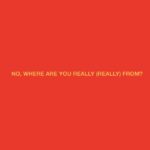It Holds Up: Citizen – ‘Youth’
Posted: by The Alt Editing Staff

The current crop of alternative rock bands that have come up in recent years owe a lot to a band like Citizen and their monumental debut album Youth. Combining elements of emo and melodic hardcore with heavy alternative rock, it dominated most other albums in 2013 with its emotionally withering lyrics and brooding atmosphere that was rife with resentment. While various reviewers at the time would describe the album as repetitive and emotionally exhaustive, Youth captured the profound sorrow and gradual disdain that comes with growing up in a way that resembled the honest experience of it for some of us in all of its searing rage and despair.
When Citizen signed to Run for Cover Records in 2012 and re-released their previous EP Young States, they were just beginning to gain momentum within that era’s pop punk scene. In 2013 when they entered Studio 4 with Will Yip to record Youth, no one could have predicted the impact it would have on alternative rock or the way it took off when it was officially released on June 11, 2013. Citizen merged the aggression and immediacy of hardcore with the measured sentimentality behind ’90s emo and are one of the only bands from that era to have remained active for the entirety of the last ten years. Alongside Title Fight, Basement, and Balance & Composure, they would inadvertently define what post-hardcore and alternative rock would be for the 2010s and beyond.
The opening song on the album, “Roam the Room,” is unforgettable as it immediately begins with a surge of simmering fury within the first ten seconds. Leading with aggressively driven drumming from Cray Wilson and swirling guitar riffs from from Nick Hamm and Ryland Oehlers, it segues into the verse with scornful lyrics that reflect on what it means to carry the weight of knowledge accumulated about other people and the conflicting emotions of not knowing what to do with it when you no longer know who they are. Vocalist Mat Kerekes would seamlessly alternate between a forthright, steady cadence before catapulting into the most tempestuous tone as he would spit searchingly, “I want to know what I’ve been fighting for / I want to know what I’ve become” before abandoning the situation with exasperating finality. It mainly centered around the tension of watching someone you once knew occupy the same space as you and presented one of the principal themes running throughout the album about the desolation of experiencing a fall out. Songs like “Figure You Out” and “The Summer” would continue exploring the same theme in different moody variations.
Halfway through the album comes the contemplative and atmospheric “How Does It Feel,” one of the slowest tracks on the album with a simple progression of distorted guitar notes and assonant bass lines from Eric Hamm. Kerekes doesn’t shout, but rather croons about watching someone disingenuous and dissecting all the ways in which no matter how much they try to fit into a mold, they still end up alone. It ranks as their second most listened to song on Spotify right below “The Night I Drove Alone” and was also accompanied by an official music video filmed and directed by Rob Soucy. Alongside “The Night I Drove Alone,” it’s among one of their most sorrowful songs that encapsulates betrayal in a way that resonated heavily with listeners and I think hit home harder because of the absence of the anger found in most of their other songs. Listening to those two songs today mostly evoke relief in knowing I’m no longer that age and that the pitfalls of my high expectations of others don’t feel half as pointed as they used to. While I don’t necessarily relate to most of the songs anymore, I recall the immense solace that they offered when I needed them to navigate through my own growing pains. The melodic “Speaking With a Ghost” picks the pace back up with captivating lines and an honest outlook on yearning for someone who is no longer there, while the penultimate “Sick and Impatient” provides one of the most forceful vocal deliveries from Kerekes and stalking melodies that wrap the album up the same way it began: with a scathing sentiment laced with a threadbare patience.
The leap that Citizen took with this album was somewhat unexpected, but it undoubtedly connected as the band would continue to surprise listeners with each album effort that followed. Some brushed Youth off as melodramatic, but the themes addressed in the album, which ranged from deep feelings of abandonment and betrayal to loneliness and depression, validated what a lot of people felt and struggled with. It unassumingly turned out to be a massive hit and there has truly never been a more life affirming experience than hearing Citizen perform “The Summer” in person and listening to everyone around you passionately cry out, “I watched you burn, and I felt it,” or “I should have crashed the car the night I drove alone, escape from August cold.”
Over time I would come back to the album and find new things to appreciate about it that coincided with my life, but eventually their third album As You Please would dethrone Youth as my personal favorite. The most important aspect of this album for me was the way it potently expressed with impressive concentration these emotions that feel earth-shattering as a young person. In ten years’ time, it has ultimately served to provide a certain audaciousness in standing up for yourself and seeing others as they truly are with a poise that can only come with the years and it remains a classic listen.
––
Loan Pham | @senseofexile
The Alternative is ad-free and 100% supported by our readers. If you’d like to help us produce more content and promote more great new music, please consider donating to our Patreon page, which also allows you to receive sweet perks like free albums and The Alternative merch.










